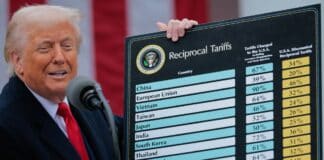The Department of Homeland Security (DHS) rolled out a new rule that places limitations on how long foreign students can remain in the United States, blocking a “forever student” loophole.
“For too long, past Administrations have allowed foreign students and other visa holders to remain in the U.S. virtually indefinitely, posing safety risks, costing untold amounts of taxpayer dollars, and disadvantaging U.S. citizens,” a DHS spokesperson said of the policy. “This new proposed rule would end that abuse once and for all by limiting the amount of time certain visa holders are allowed to remain in the U.S., easing the burden on the federal government to properly oversee foreign students and their history.”
The new policy targets a 1978 rule that permitted foreign students into the country for an unspecified period called the “duration of status.” Those holding this visa were allowed to remain in the country without further vetting.
Under President Trump’s proposed rule, the federal government would determine admission and extension periods for foreign students according to the program they are involved in, not to exceed a 4-year period. “The rule would set the initial admission period for foreign media representatives at up to 240 days,” DHS said. “Foreign media representatives would be eligible for an extension period of up to 240 days, but no longer than the length of the temporary activity or assignment.”
According to a Federal Register notice of the policy, the “sheer size of the population complicates oversight and vetting functions,” as the number of F nonimmigrant students admitted into the country “has more than sextupled.”
DHS expects this change would deter and prevent fraud, as a requirement to check-in directly with an immigration officer is inherently likely to deter exploitation of perceived vulnerabilities in the F and J nonimmigrant classifications,” the notice read.





